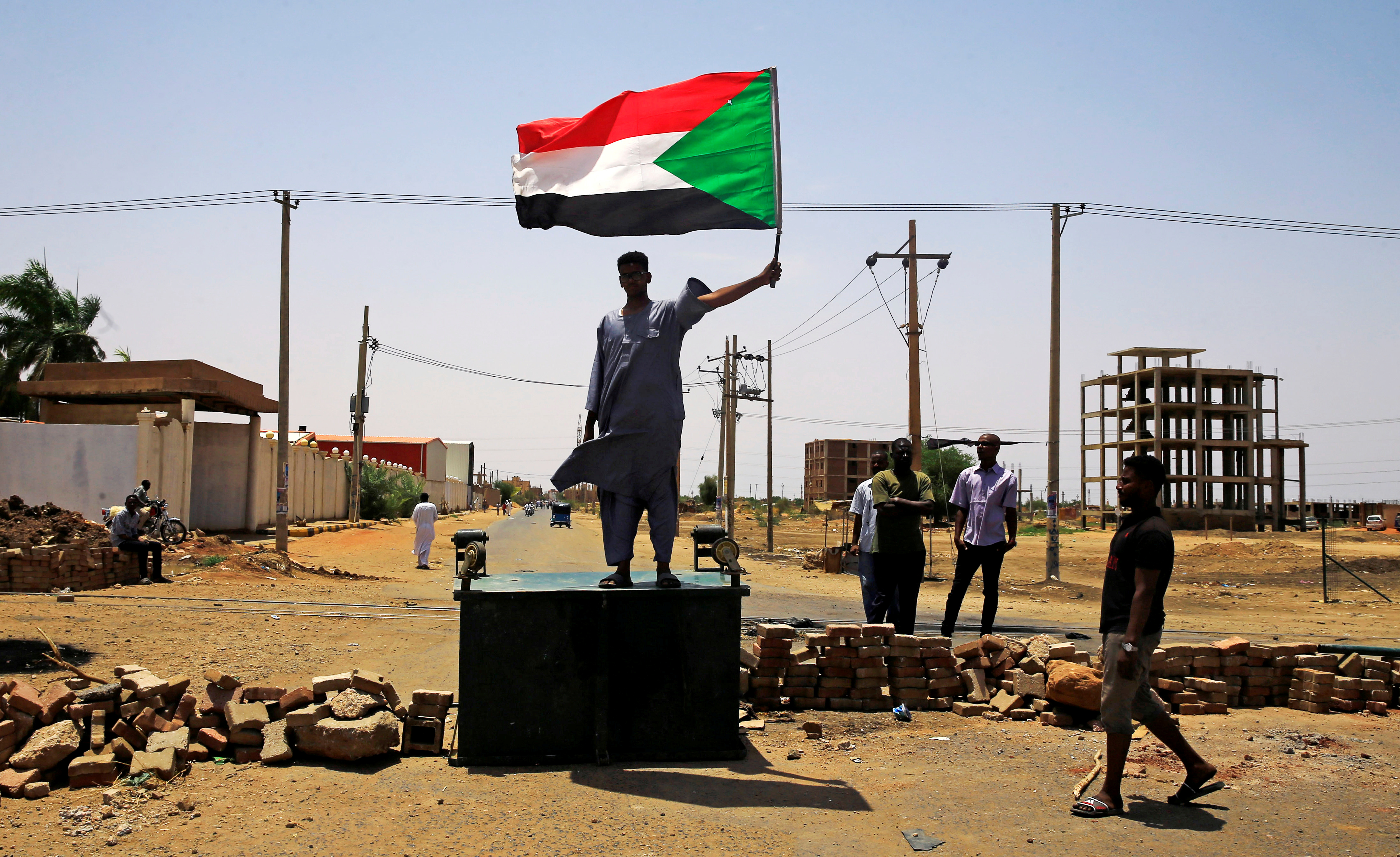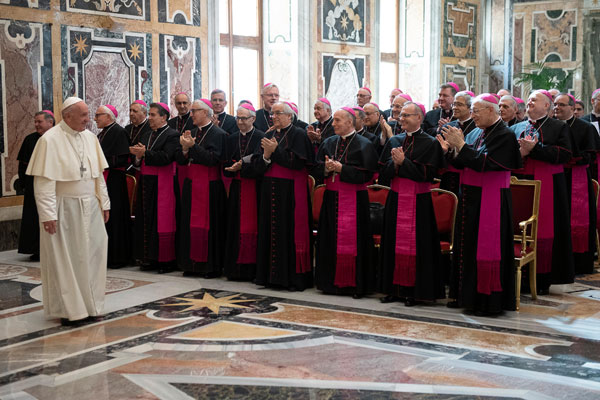Pope Francis has issued his diplomatic representatives with a forceful reminder that their role requires loyalty to the papacy, and is incompatible with being involved in directing hostility against the Roman Pontiff.
During his pontificate Francis has seen one of his diplomats, Archbishop Carlo Maria Viganò, issue an unprecedented broadside against him calling for his resignation, while another has used social media to chastise him over comments on marriage and the family.
The role of a papal ambassador, the 82-year-old Pope explained in a message handed to a large gathering of diplomats in the Vatican’s apostolic palace on 13 June, is “irreconcilable” with “criticising the Pope behind his back,” or having blogs and joining groups “hostile to him, the Curia, or the Roman Church.”
The Pope’s ambassadors, known as apostolic nuncios, represent him on diplomatic missions in 180 countries across the world. They have a two-fold job of representing the Holy See to foreign governments and supporting the local Church, including drawing up the paperwork for the selection of bishops.
The role requires discretion, tact and a pledge of loyalty to the Successor of St Peter given the role means sharing in the universal ministry of the papacy.
Under Francis, however, some diplomats have gone rogue. Archbishop Viganò’s 26 August diatribe against Francis ran counter to his ministry as a diplomat, and life of loyal service to the papacy. Then there is Archbishop Timothy Gullickson who, as apostolic nuncio in a sensitive posting to Ukraine, used a blog to criticise the Pope on marriage and family life matters, while tweeting out articles with headlines which included: “The Pope Got It Completely and Utterly Wrong.” In another instance, in Austria, the papal representative found himself publicly berating Cardinal Reinhard Marx, a close ally of Francis and the President of the German Bishops’ Conference.
“As a Pontifical Representative, the nuncio does not represent himself but the Successor of Peter and acts on his behalf with the Church and the Governments,” the Pope wrote.
“[The] representative is a link, or better, a bridge of connection between the Vicar of Christ and the people to whom he was sent.”
Francis had been due to deliver his remarks in a speech to diplomats during a triennial gathering of his ambassadors across the world taking place from the 12-15 June. But rather than giving a speech he told them he would send the text to them before proceeding to open the floor to two hours of questions and answers, behind closed doors.
In the message Francis offered ten points of guidance - a “decalogue” - in how to be good ambassadors, stressing that nuncios must be “men of God,” and “pure in mind and heart.” Diplomats must, he added, preserve their "eyes and ears from the filth of the world,”
This has not always been the case.
In 2018, a Vatican court handed a five-year prison sentence to Mgr Carlo Capella, a diplomat based in Washington, for possessing and distributing child pornography, and in 2014 Archbishop Jozef Wesolowski, the former nuncio to the Dominican Republic was removed from the priesthood following allegations of child abuse. He died in 2015 awaiting a Vatican trial for possessing child pornography. Meanwhile, in France, the papal representative, Archbishop Luigi Ventura, is facing a police investigation for alleged sexually assaulting a government official in Paris.
Given the role of a nuncio meanings brushing shoulders with powerful figures, the Pope warned his diplomats about accepting gifts, which could make them vulnerable.
“No gift of any value should ever enslave us!” he said. “Refuse gifts that are too expensive and often useless - send them to charity.”
Francis’ decalogue also included the importance of nuncios being obedient, something that Archbishop Viganò stands accused of breaching. After the former papal ambassador to the United States had released his accusations against the Pope - which allege Francis mishandled abuse allegations levelled against ex-Cardinal Theodore McCarrick - a senior Cardinal, Marc Ouellet, hit back.
The Prefect of the Congregation for Bishops told Viganò in a letter he was in an “open and scandalous rebellion” and had sought to deal an “unheard of and undeserved blow on the moral authority of your Superior, the Supreme Pontiff."
For the Pope, “a nuncio who does not live the virtue of obedience - even when it is difficult and contrary to his personal vision - is like a traveler who loses his compass,” and he also stressed that ambassadors must not be a “bad master” to their “collaborators, staff, nuns” and those who work in the nunciature.
The Church’s diplomatic corps is drawn from some of the ablest priests across the world who, upon selection, are sent for further training at the prestigious Pontifical Ecclesiastical Academy, known as the “Accademia.”
Papal diplomats have a reputation for speaking several languages proficiently and often risk their lives to serve in war-torn countries where Western countries have closed their embassies.
In 2003, in Burundi, then ambassador Archbishop Michael Courtney was shot dead after trying to negotiate a peace agreement in the country, while his successor, Archbishop Paul Gallagher, now the Vatican’s foreign minister, had his residence bombed six years later.
In Syria, Cardinal Mario Zenari has been in Damascus since 2008, while during the 2003 Iraq war, Cardinal Fernando Filoni, now Prefect for the Congregation for the Evangelisation of Peoples, remained in Baghdad while the bombs fell.
The Pope said in his message that the nuncios must distinguish themselves by self-sacrificial service, pointing out that at Christmas and Easter, when other diplomats return home, “the Nuncio remains in place to celebrate the feast with the people of God.”



 Loading ...
Loading ...